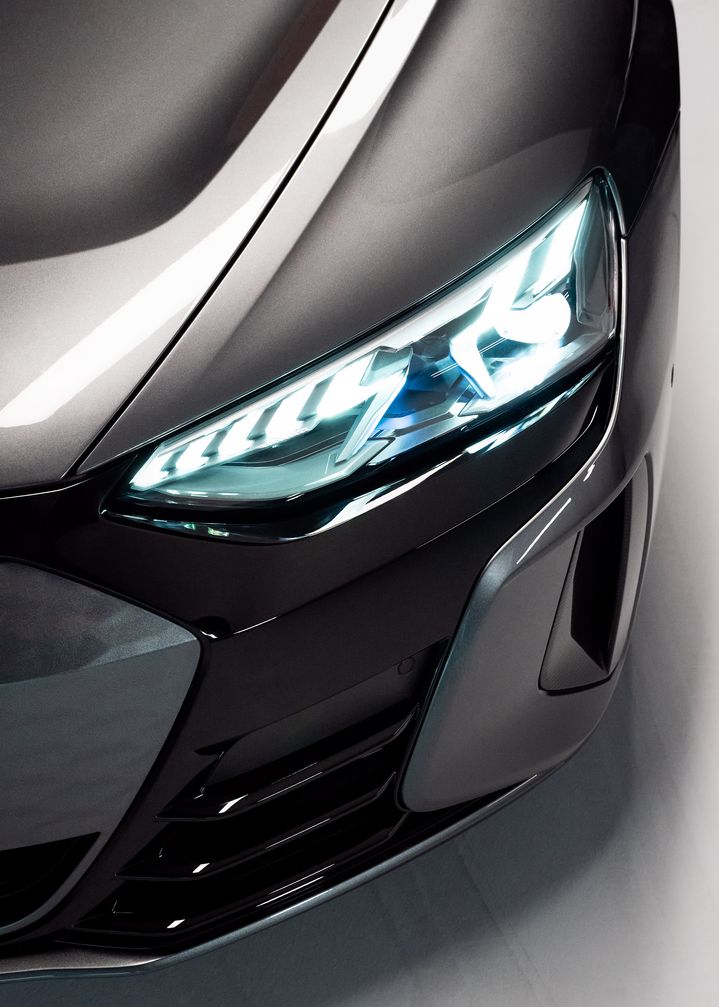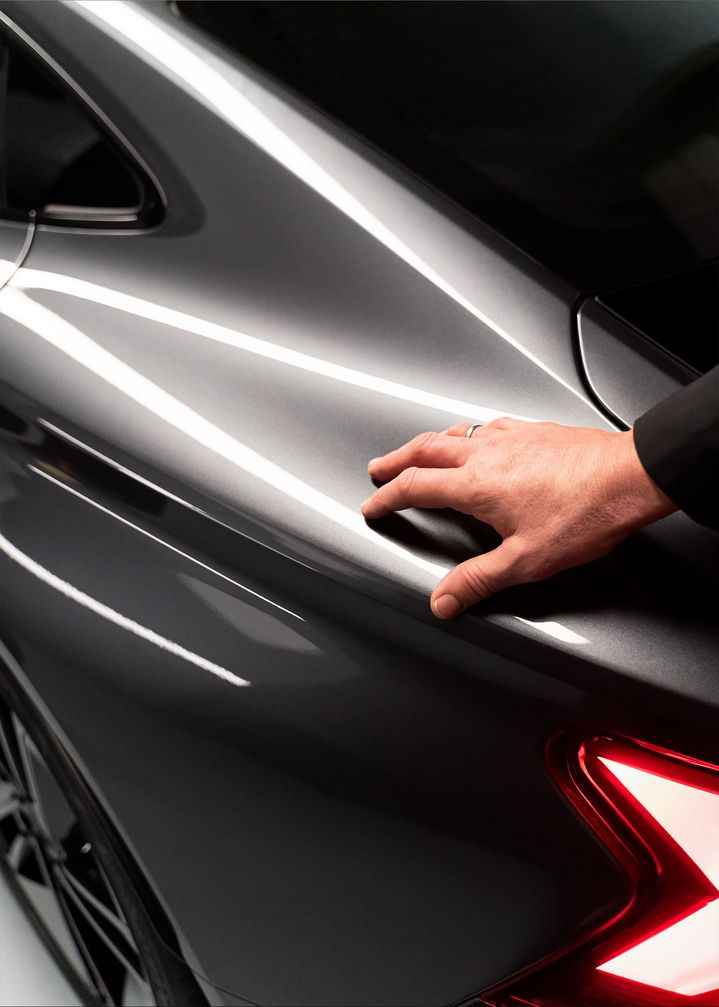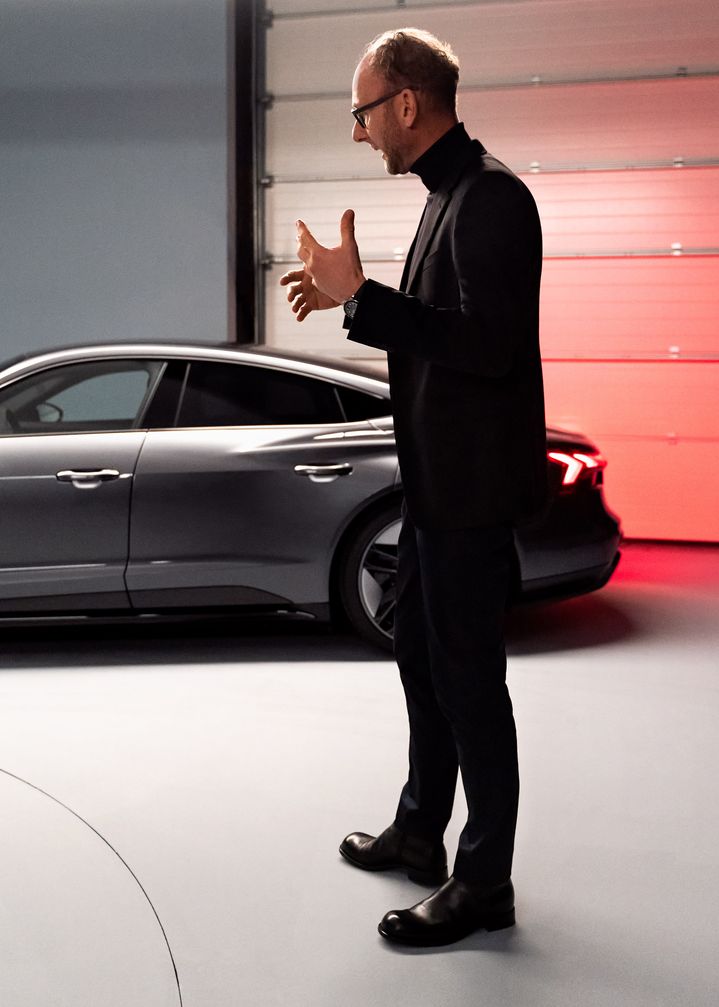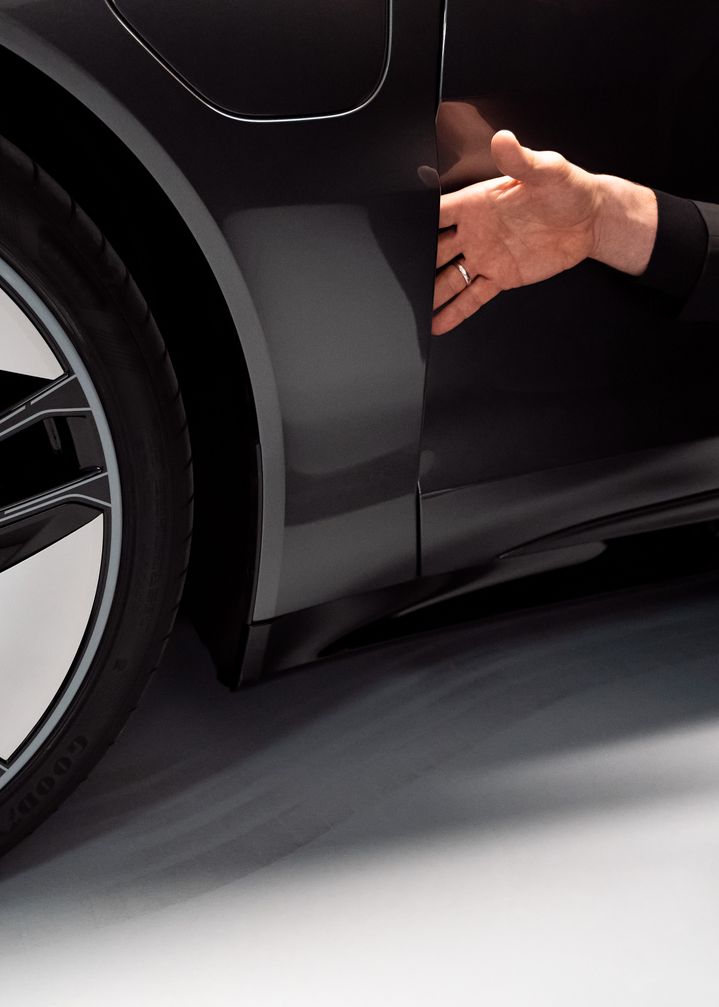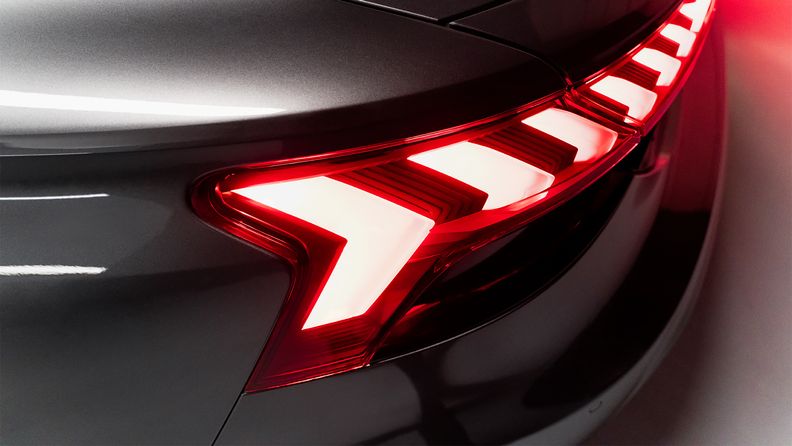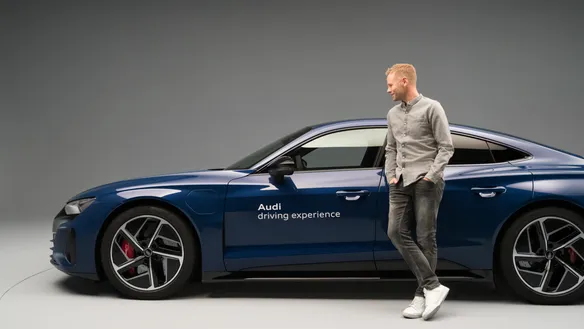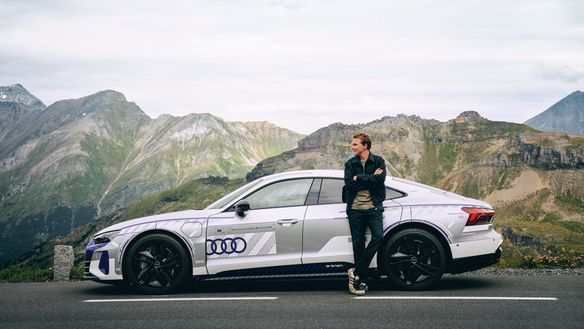The masterpiece
Audi e-tron GT quattro: Power consumption (combined) in kWh/100 km: 21.6–19.6CO₂ emissions (combined) in g/km: 0CO₂ emission class: A
German model shown. Stated specifications apply only in Germany and are not applicable in other regions.
Audi e-tron GT quattro: Power consumption (combined) in kWh/100 km: 21.6–19.6CO₂ emissions (combined) in g/km: 0CO₂ emission class: A
German model shown. Stated specifications apply only in Germany and are not applicable in other regions.

Audi RS e-tron GT: Power consumption (combined) in kWh/100 km: 21.1–18.4CO₂ emissions (combined) in g/km: 0CO₂ emission class: A
German model shown. Stated specifications apply only in Germany and are not applicable in other regions.
Audi RS e-tron GT: Power consumption (combined) in kWh/100 km: 21.1–18.4CO₂ emissions (combined) in g/km: 0CO₂ emission class: A
German model shown. Stated specifications apply only in Germany and are not applicable in other regions.
“
It’s by far the best car I’ve ever had the privilege of designing. Which makes me incredibly happy.”
1. Marc, when you look at the Audi e-tron GT quattro, what emotions does it stir up?
My heart races. The Audi e-tron GT quattro is a very special car for me. Ever since I drew cars as a kid, I’ve dreamed of creating something like this—a huge wheelbase, low-slung cockpit and giant wheels with short overhangs. With the GT, my dream has come true. This car is like a sketch. I’ve been designing production cars for over 20 years. There have been plenty of good ones and perhaps even a few icons. But this car eclipses them all. It’s by far the best car I’ve ever had the privilege of designing. Which makes me incredibly happy.
Audi e-tron GT quattro: Power consumption (combined) in kWh/100 km: 21.6–19.6CO₂ emissions (combined) in g/km: 0CO₂ emission class: A
German model shown. Stated specifications apply only in Germany and are not applicable in other regions.
Audi e-tron GT quattro: Power consumption (combined) in kWh/100 km: 21.6–19.6CO₂ emissions (combined) in g/km: 0CO₂ emission class: A
German model shown. Stated specifications apply only in Germany and are not applicable in other regions.
2. What happy memory of designing the GT do you recall fondly?
That’s easy. It was when we first showed the Audi e-tron GT quattro proportion model to the Board of Management. Everyone instantly fell in love with the car. Which led us to unveil the GT as a show car in Los Angeles in November 2018. That was another intensely emotional experience. The car received great press. All the journalists agreed it was an awesome car but wondered how much of the design would survive in the production version. So now, in 2021, the big surprise is that there are no surprises.
3. What Audi e-tron GT quattro feature do you particularly appreciate?
A good design always meshes strong aesthetics with perfect functionality. With the GT, we’ve squared the circle in a way that you wouldn’t think possible. As an all-electric, true driver’s sports car with high-performance handling, it’s nothing short of a design object and incredibly low to the ground. But at the same time it’s a full-fledged five-seater—a surprisingly spacious four-door gran turismo that’s also practical enough for an everyday runaround. The fact that we succeeded in bridging the divide between strict aesthetics and uncompromising functionality still amazes me. It should be a contradiction in terms. It shouldn’t work at all.
Audi e-tron GT quattro: Power consumption (combined) in kWh/100 km: 21.6–19.6CO₂ emissions (combined) in g/km: 0CO₂ emission class: A
German model shown. Stated specifications apply only in Germany and are not applicable in other regions.
Audi e-tron GT quattro: Power consumption (combined) in kWh/100 km: 21.6–19.6CO₂ emissions (combined) in g/km: 0CO₂ emission class: A
German model shown. Stated specifications apply only in Germany and are not applicable in other regions.

4. What are you most proud of with the GT?
The Audi e-tron GT quattro is perfectly proportioned. My philosophy is that proportions are always the springboard to good design. That applies in equal measure to architecture and fashion as well as cars. In that respect, the GT’s design is built on a sound foundation—giant wheels, beautifully tight transitions and a seriously road-hugging silhouette. These proportions take their cue from the Audi electric platform. Of course, there are lots of different ways to highlight e-mobility visually through design. The way we see it, electric mobility enables us to design the most beautiful cars in the world. Our design chronicles the drive system’s evolution through the inverted Singleframe grille, deep hood, aerodynamic elements, soft shoulder line, battery located in the floor, roof line, quattro muscle and separation edge. At the same time, we strive to ensure that every all-electric Audi has breathtaking proportions and a knock-out design.
Audi e-tron GT quattro: Power consumption (combined) in kWh/100 km: 21.6–19.6CO₂ emissions (combined) in g/km: 0CO₂ emission class: A
German model shown. Stated specifications apply only in Germany and are not applicable in other regions.
Audi e-tron GT quattro: Power consumption (combined) in kWh/100 km: 21.6–19.6CO₂ emissions (combined) in g/km: 0CO₂ emission class: A
German model shown. Stated specifications apply only in Germany and are not applicable in other regions.
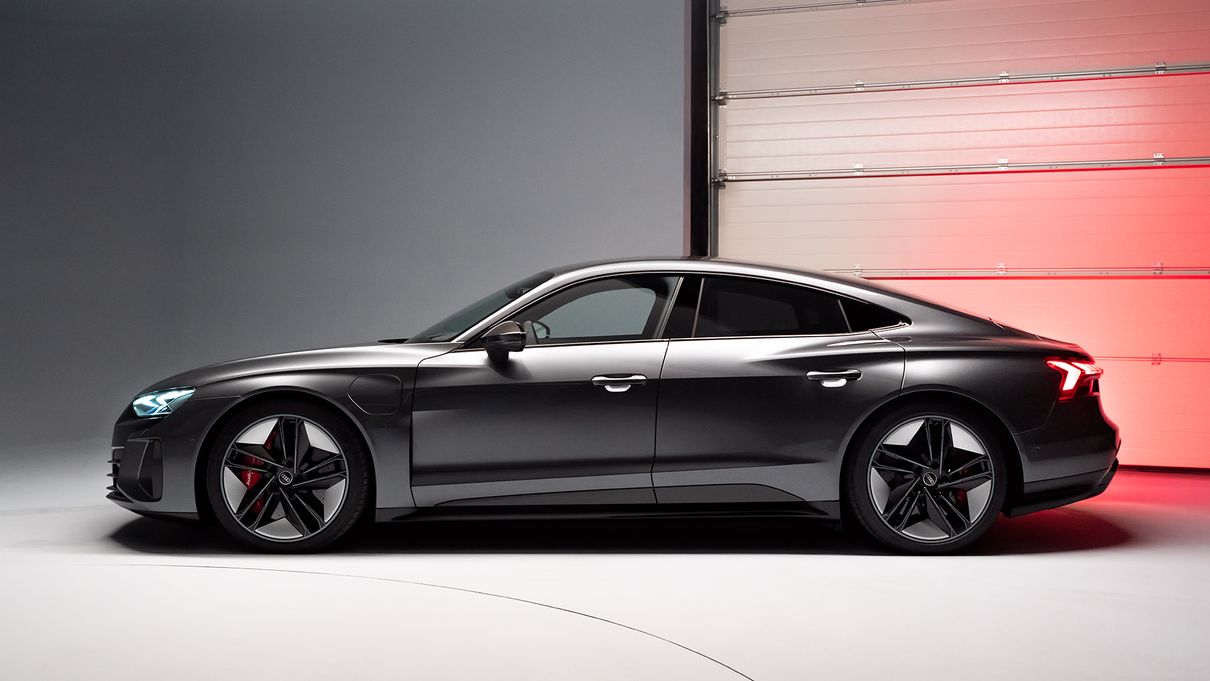
Audi RS e-tron GT: Power consumption (combined) in kWh/100 km: 21.1–18.4CO₂ emissions (combined) in g/km: 0CO₂ emission class: A
German model shown. Stated specifications apply only in Germany and are not applicable in other regions.
Audi RS e-tron GT: Power consumption (combined) in kWh/100 km: 21.1–18.4CO₂ emissions (combined) in g/km: 0CO₂ emission class: A
German model shown. Stated specifications apply only in Germany and are not applicable in other regions.
5. What was the first line of the Audi e-tron GT quattro that you set down?
The muscle-topped wheel arches. In my mind, that’s what makes it an Audi. For decades, the shoulder line typically stretched along a consistent height. No more. Now, it’s interrupted in the middle, accentuating with subtle contours the vehicle silhouette’s brawniness at the front and rear—what we refer to as the quattro muscle. In the past, the shoulder line simply connected two planes. But on the Audi e-tron GT quattro, it’s given maximum prominence, standing out in sharp relief—like a quattro sculpture.
Audi e-tron GT quattro: Power consumption (combined) in kWh/100 km: 21.6–19.6CO₂ emissions (combined) in g/km: 0CO₂ emission class: A
German model shown. Stated specifications apply only in Germany and are not applicable in other regions.
Audi e-tron GT quattro: Power consumption (combined) in kWh/100 km: 21.6–19.6CO₂ emissions (combined) in g/km: 0CO₂ emission class: A
German model shown. Stated specifications apply only in Germany and are not applicable in other regions.
“
The muscle on the Audi e-tron GT quattro marks the way forward and into the future for quattro.”
6. What is your favorite design detail on the GT?
The quattro muscle at the tail end. quattro has been synonymous with Audi from the start. And that’s not going to change any time soon. It’s what sets us apart. The muscle on the Audi e-tron GT quattro marks the way forward and into the future for quattro. Molding the sheet metal into a muscular bulge was a huge challenge because this part is clamped with utmost precision. Together with the tool makers, we spent three months just on modeling this panel. Time and again, the sheet metal split at this point, but we just kept testing its limits—modeling, simulating, molding. Then going back to the drawing board. Until it was perfect. And nothing could improve it.
Audi e-tron GT quattro: Power consumption (combined) in kWh/100 km: 21.6–19.6CO₂ emissions (combined) in g/km: 0CO₂ emission class: A
German model shown. Stated specifications apply only in Germany and are not applicable in other regions.
Audi e-tron GT quattro: Power consumption (combined) in kWh/100 km: 21.6–19.6CO₂ emissions (combined) in g/km: 0CO₂ emission class: A
German model shown. Stated specifications apply only in Germany and are not applicable in other regions.

7. Which color do you think works especially well on the Audi e-tron GT quattro?
Daytona Grey1. This color has been in the Audi palette for almost 20 years. To this day, it not only showcases contours magnificently but also looks sporty and elegant. Every feature springs to life, every contrast is dramatized to the full. Muscular definition is heightened and each tiny area we devoted so much love and attention to comes into its own. Daytona Grey1 accentuates everything beautifully.
Audi e-tron GT quattro: Power consumption (combined) in kWh/100 km: 21.6–19.6CO₂ emissions (combined) in g/km: 0CO₂ emission class: A
German model shown. Stated specifications apply only in Germany and are not applicable in other regions.
Audi e-tron GT quattro: Power consumption (combined) in kWh/100 km: 21.6–19.6CO₂ emissions (combined) in g/km: 0CO₂ emission class: A
German model shown. Stated specifications apply only in Germany and are not applicable in other regions.
8. What do you rave about most when talking to someone about the Audi e-tron GT quattro?
That the GT is not only the most beautiful but also one of the most aerodynamic and efficient Audi models ever built. It’s a battery-powered five-seater, which has enough headroom in the back even for tall people like me. That makes it sound like it’s quite a height. And yet, the car is seven centimeters lower than the Audi A7 Sportback. This is what I mean when I say that the GT is a masterpiece of engineering! Thanks to active aerodynamic measures, the Audi e-tron GT quattro has one of the best drag coefficients of any Audi vehicle. That ensures not only its performance but also its range.
Audi e-tron GT quattro: Power consumption (combined) in kWh/100 km: 21.6–19.6CO₂ emissions (combined) in g/km: 0CO₂ emission class: A
Audi A7 Sportback: Fuel consumption (combined) in l/100 km: 9.0–5.3CO₂ emissions (combined) in g/km: 204–138CO₂ emission classes: G–E
German model shown. Stated specifications apply only in Germany and are not applicable in other regions.
Audi e-tron GT quattro: Power consumption (combined) in kWh/100 km: 21.6–19.6CO₂ emissions (combined) in g/km: 0CO₂ emission class: A
Audi A7 Sportback: Fuel consumption (combined) in l/100 km: 9.0–5.3CO₂ emissions (combined) in g/km: 204–138CO₂ emission classes: G–E
German model shown. Stated specifications apply only in Germany and are not applicable in other regions.

“
I could do some things differently—but not better.”
9. The end of one design is the beginning of the next. What would you do differently in designing the next Audi e-tron GT quattro?
Nothing. Because it’s perfect. Wondering about how to do a facelift is already giving me headaches. In the past, when a car was released I always knew already what details I’d like to tweak in the update. That’s not the case with the GT. I could do some things differently—but not better. The Audi e-tron GT quattro has a certain timeless quality, just as it is.
Audi e-tron GT quattro: Power consumption (combined) in kWh/100 km: 21.6–19.6CO₂ emissions (combined) in g/km: 0CO₂ emission class: A
German model shown. Stated specifications apply only in Germany and are not applicable in other regions.
Audi e-tron GT quattro: Power consumption (combined) in kWh/100 km: 21.6–19.6CO₂ emissions (combined) in g/km: 0CO₂ emission class: A
German model shown. Stated specifications apply only in Germany and are not applicable in other regions.
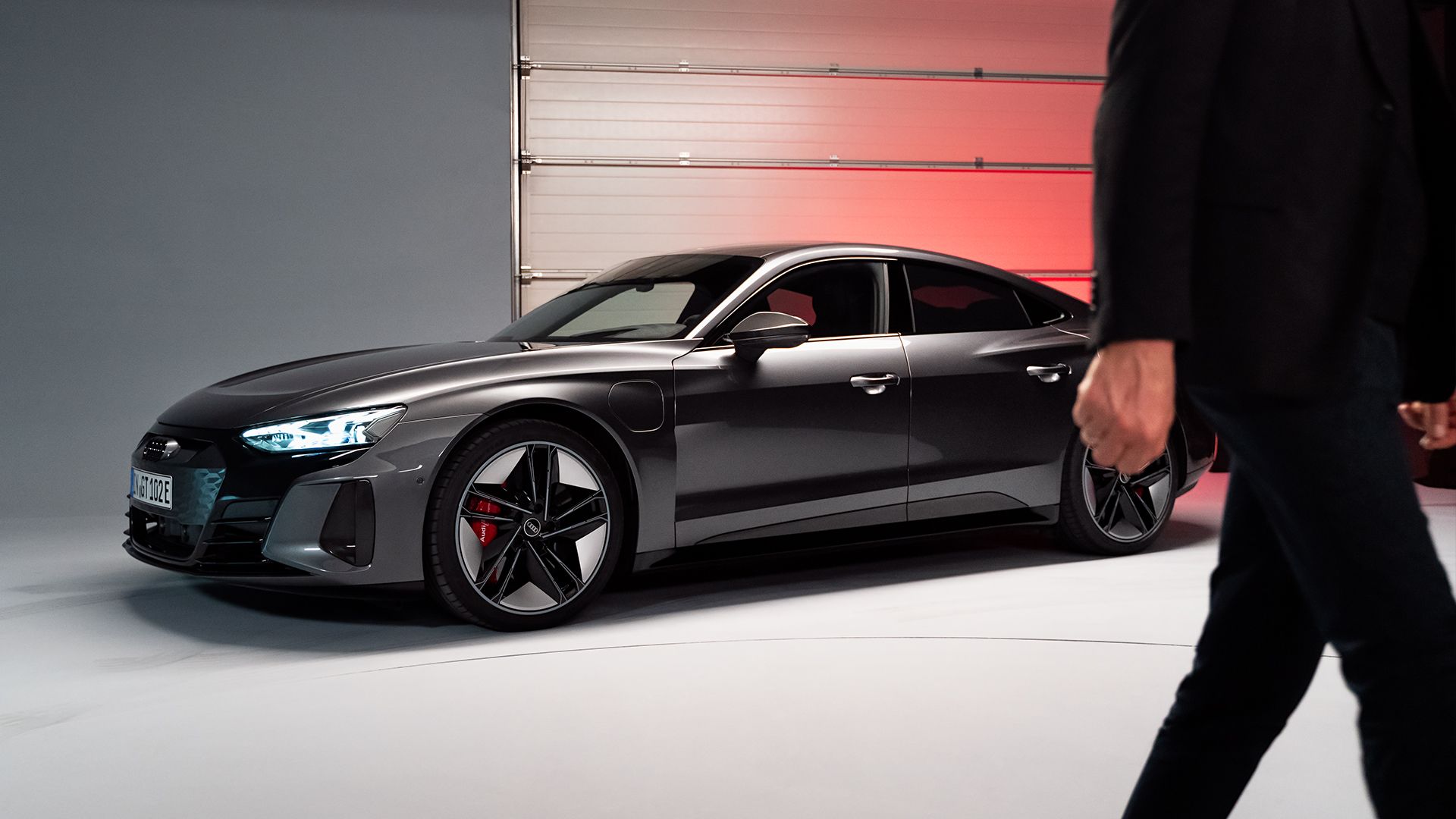
Audi RS e-tron GT: Power consumption (combined) in kWh/100 km: 21.1–18.4CO₂ emissions (combined) in g/km: 0CO₂ emission class: A
German model shown. Stated specifications apply only in Germany and are not applicable in other regions.
Audi RS e-tron GT: Power consumption (combined) in kWh/100 km: 21.1–18.4CO₂ emissions (combined) in g/km: 0CO₂ emission class: A
German model shown. Stated specifications apply only in Germany and are not applicable in other regions.

